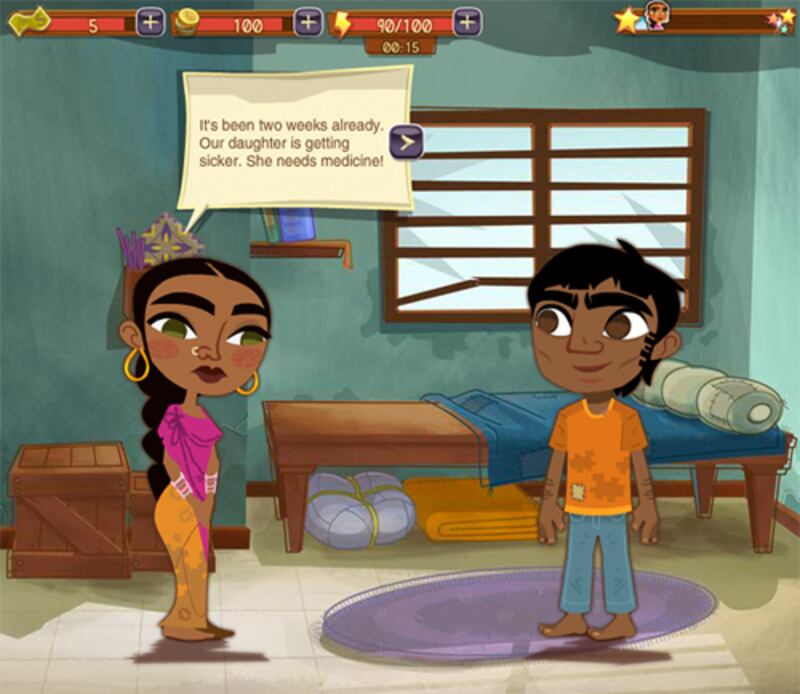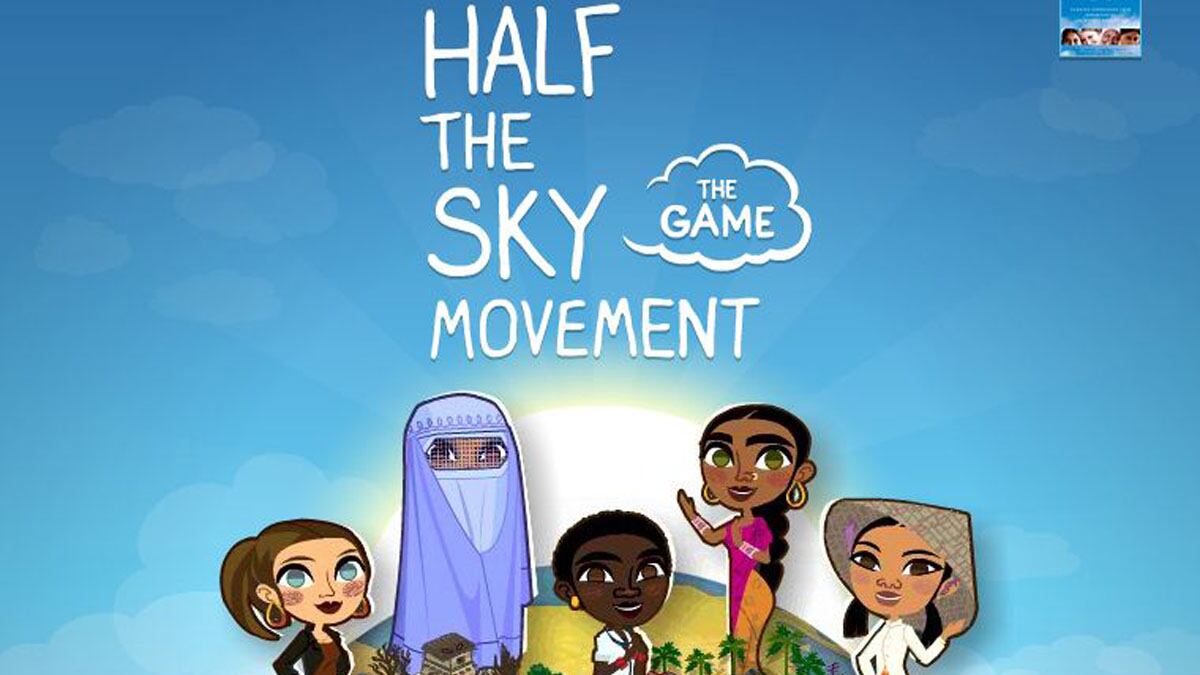Like other games on Facebook, Half the Sky: The Game may be popping up in your news feed soon. But this is no Candy Crush Saga. The Half the Sky game, which launches Monday, is the brainchild of Games for Change and Pulitzer Prize–winning authors Nicholas Kristof and Sheryl WuDunn, authors of Half the Sky: Turning Oppression into Opportunity for Women Worldwide—and it will turn playing a game into an opportunity to donate money to nonprofit organizations around the world.
That’s right. Half the Sky: The Game will match the virtual donations made by players into real-world donations to the Fistula Foundation, Girls & Education Mentoring Services, Heifer International, ONE, Room to Read, the United Nations Foundation, and World Vision, all nonprofit foundations.
“It’s all through a click. There’s nothing you can do that’s more convenient for people,” said Sheryl WuDunn in an interview with The Daily Beast.
In the game, players follow an Indian woman named Radhika as she navigates some of the challenges faced by modern-day women. She starts out as a village woman trying to raise money for her ill daughter. But as the game progresses, Radhika travels the world and, in each location, is met with specific issues women and girls face in that location.
“It’s going to be one of the most interesting ways you can learn about a topic you probably never heard of before and that you never heard about before,” WuDunn said.
What makes Half the Sky unique is that it offers real-life examples in the experiences. In one instance, Radhika needs to raise money to get her daughter a vaccine. Players can donate money to help vaccination drives or can work to donate money.
“It’s a real game, and you are making a real-world difference in someone’s life,” said Michelle Byrd, the co-president of Games for Change, which co-produced Half the Sky: The Game. “Just by tuning in to play this game, you are making a difference. You are unlocking $500,000 worth of funding that comes from sponsors and will be unlocked through player activity and will go to real-world organizations.”
But the game doesn’t just donate money. It also helps educate the players to some of the challenges women face around the globe, especially as Radhika travels to far-off lands such as Vietnam, Afghanistan, and Kenya.
The game is the third platform Half the Sky has used to raise awareness for the cause, following the book and a four-hour documentary on PBS. But Half the Sky: The Game is the most ambitious effort yet to go mainstream. Even WuDunn admits that in the early stages of development, people thought it was an “off-the-wall, wacky idea” to take an issue so serious and apply it to a game.
But WuDunn calls gaming a “natural twist” on the book and the documentary, only this time they’re getting the users involved in the process. The aim is for the game to draw 2 million to 5 million players, with the hope of getting 5 percent to donate. It’s an ambitious number, but Byrd said it is just a fraction of the 300 million people who play Facebook games every month.

The Facebook platform was chosen, she said, because the average Facebook game player tends to be a 39-year-old woman—a woman who perhaps is starting a family and becoming more aware of the worldwide challenges facing women and girls.
Bryd said she hopes the game will serve as a tipping point for Games for Change, which was founded in 2004 to use entertainment and games for social good. With a game such as Half the Sky, the message becomes something interactive—something users can enjoy.
“Because of the game, you can say you’re doing something really fun,” WuDunn said.






